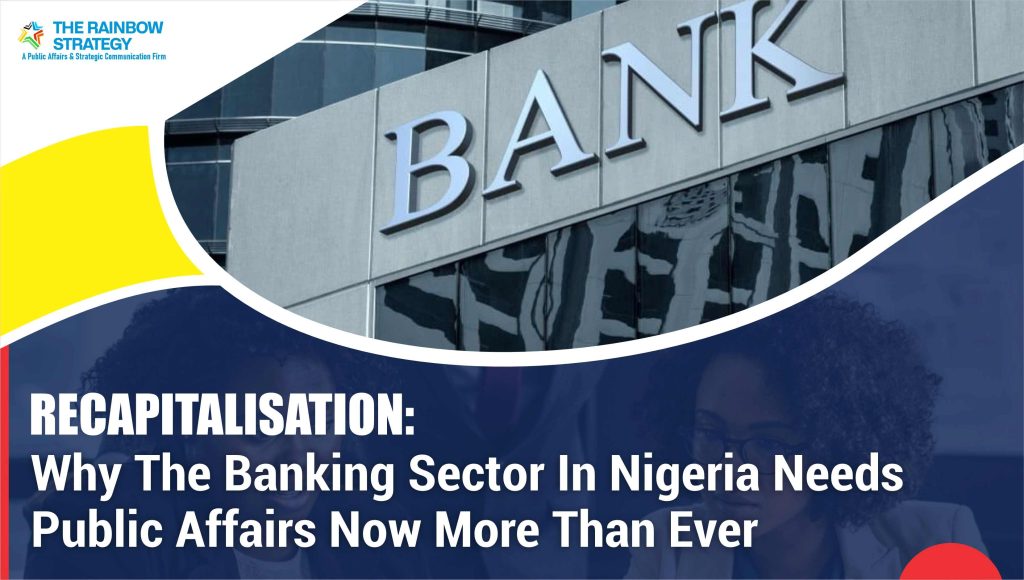In today’s rapidly evolving financial landscape, the Central Bank of Nigeria’s bank recapitalisation policy has already yielded tangible wins as many lenders have met the higher capital thresholds, and there has been a marked surge in credit to the real economy—a testament to stronger balance sheets and renewed risk appetite. Yet, Nigerian banks find themselves at a pivotal crossroads. The digitisation of the economy has fundamentally reshaped the financial services landscape worldwide, and Nigeria is no exception, as well-capitalised banks can now fast-track their own technological transformation. They are investing in modern core-banking platforms, digital-lending portals and APIs that facilitate open banking. This not only drives operational efficiency and customer convenience but also deepens financial inclusion by bringing unbanked populations into digital channels.
However, over the past few years, the rapid evolution of technology has transformed the relationship between banks and their clients. With most financial services now available online and through mobile platforms, customers can easily compare offers and access services at the click of a button. In this dynamic environment, competitive rates and physical storefronts are no longer the only keys to success; what truly matters is the experience and relational aspect that banks create. For Nigerian banks, investing in Public Affairs (PA) strategies now more than ever is essential to fostering trust, guiding change, and establishing lasting relationships with stakeholders.
Embracing a Two-Way PA Culture
Modern PA is not merely about broadcasting messages or controlling the narrative—it’s about engaging in an authentic dialogue with diverse stakeholder groups. As defined by reputable PA practitioners, the practice centres on managing relationships through communication that fosters mutual understanding, supports organisational goals, and serves the public interest. In Nigeria, a robust PA framework means stepping away from one-sided communications and inviting feedback from local communities, customers, investors, and regulatory bodies. Such two-way engagement is vital, especially as banks navigate digital transformations while balancing tradition with innovation.
Building Authentic Relationships
Nigerian banks hold a pivotal role in both local communities and the national economy. By harnessing effective PA tools—such as working with influential figures, hosting community engagements, and developing interactive digital channels—they can tell their stories in a way that resonates with the public. Whether addressing decisions like consolidating physical branches or guiding customers through new digital initiatives, a thoughtful PA approach helps demystify change. This inclusivity not only informs stakeholders but also empowers them to contribute meaningfully to the evolution of banking services in Nigeria. By actively listening and responding, banks build relationships that go beyond transactional interactions, ultimately achieving a competitive edge in a crowded marketplace.
Safeguarding Trust in a Digital Age
Trust is the cornerstone of any successful banking relationship. In Nigeria, where banks are integral to daily economic activity and long-term financial stability, maintaining public trust is crucial. A robust PA strategy aids in preempting misunderstandings and swiftly addressing issues before they escalate into crises. When banks articulate changes transparently—be it the deployment of new digital services or adjustments to customer protocols—they reassure stakeholders that their interests are front and centre. Trust, once built through consistent and meaningful communication, not only protects the financial institution but also strengthens the broader economy by fostering confidence among investors, entrepreneurs, and the general public.
Navigating the Challenges of Technological Uncertainty
As Nigerian banks continue their digital transformation, they face a rapidly evolving technological landscape and an increasingly informed customer base. PA offers an avenue to bridge the gap between innovation and customer understanding. Through regular interactions—whether via community sessions, digital forums, or interactive social media channels—banks can explain complex changes, manage expectations, and refine their approaches based on direct feedback. This proactive engagement is particularly important in a market marked by technological leaps and frequent regulatory updates. A transparent PA strategy not only mitigates risks but also turns potential obstacles into opportunities for collaborative problem-solving.
PA as a Strategic Investment

Investing in PA is an investment in the long-term resilience of the banking sector. In Nigeria, where consumer needs are rapidly evolving and competition is intensifying, PA can differentiate banks that truly care about their clients from those that simply conduct transactions. An effective PA strategy demonstrates that a bank is not only technologically advanced but also deeply committed to listening, learning, and adapting to the needs of its clientele. By emphasising authentic dialogue and proactive communication, banks build a positive reputation that attracts and retains clients, even amid a turbulent economic landscape.
Conclusion
For Nigerian banks, the strategic application of PA is no longer a luxury—it is an imperative. In an era where digital innovation is both an opportunity and a challenge, banks must work harder than ever to build genuine relationships, safeguard trust, and maintain open channels of dialogue with all their stakeholders. By doing so, they pave the way for a resilient, customer-centric future that meets the evolving needs of Nigeria’s dynamic economy. Embracing PA not only sets the stage for enhanced competitiveness but also for fostering long-lasting community ties and economic prosperity.








